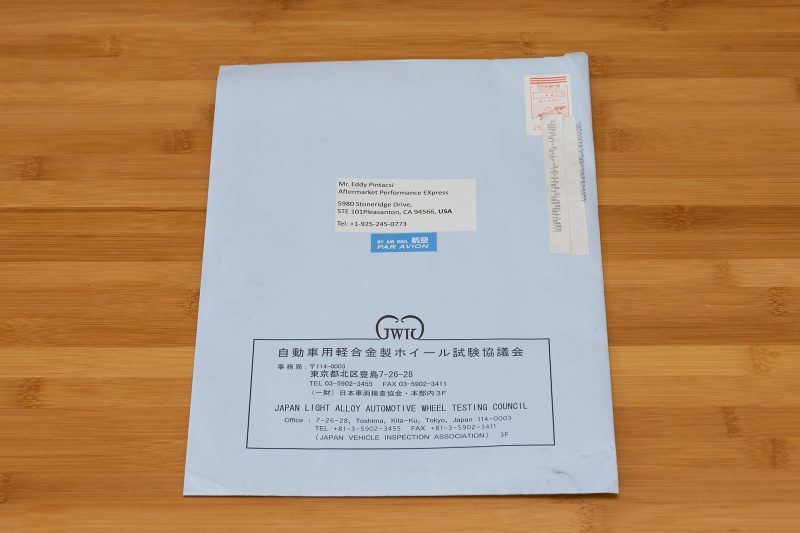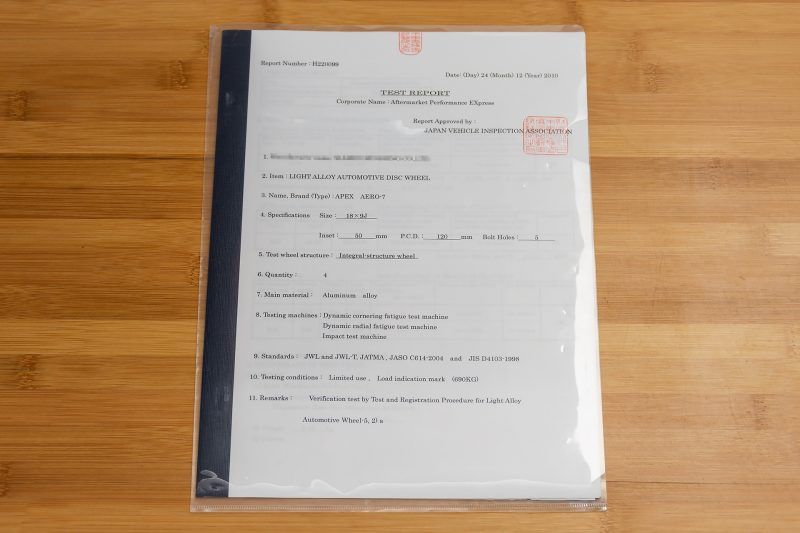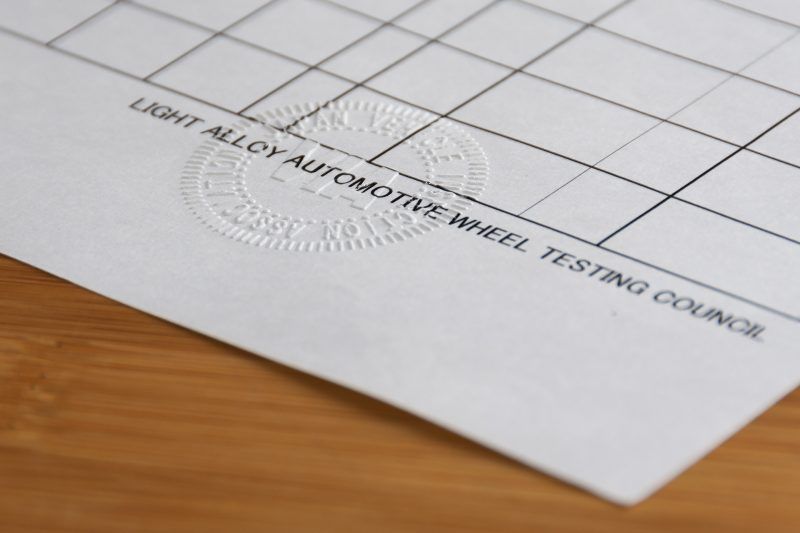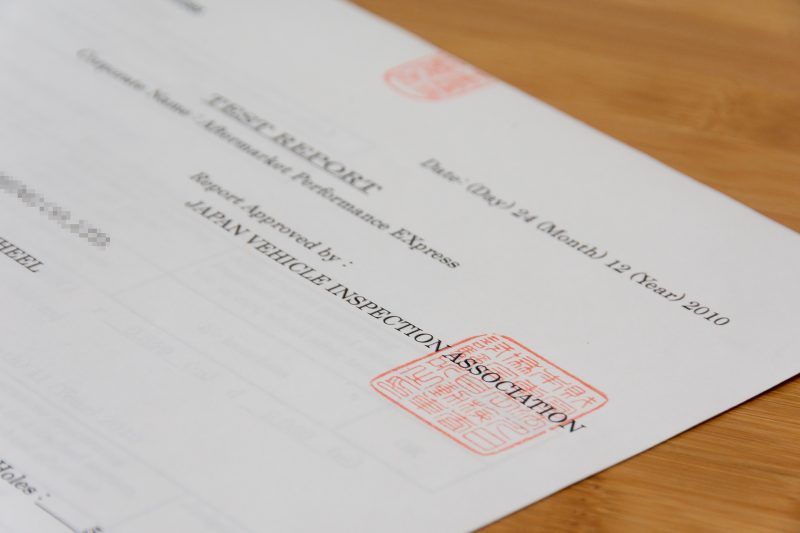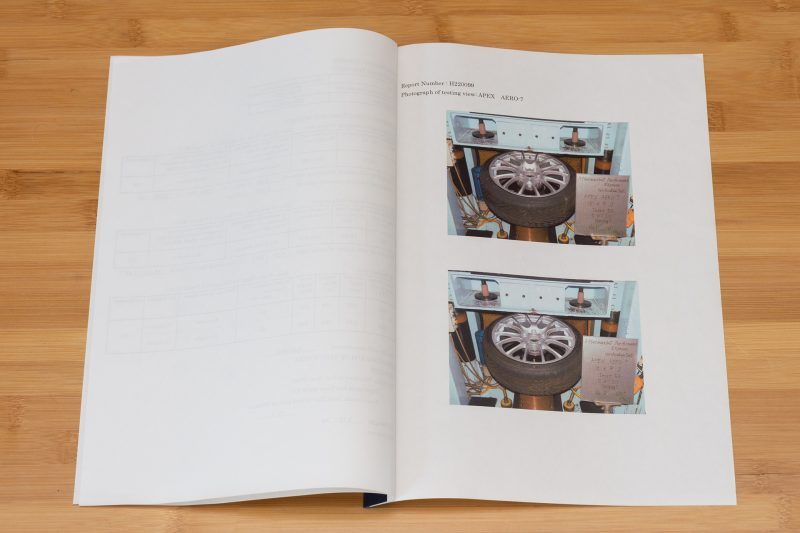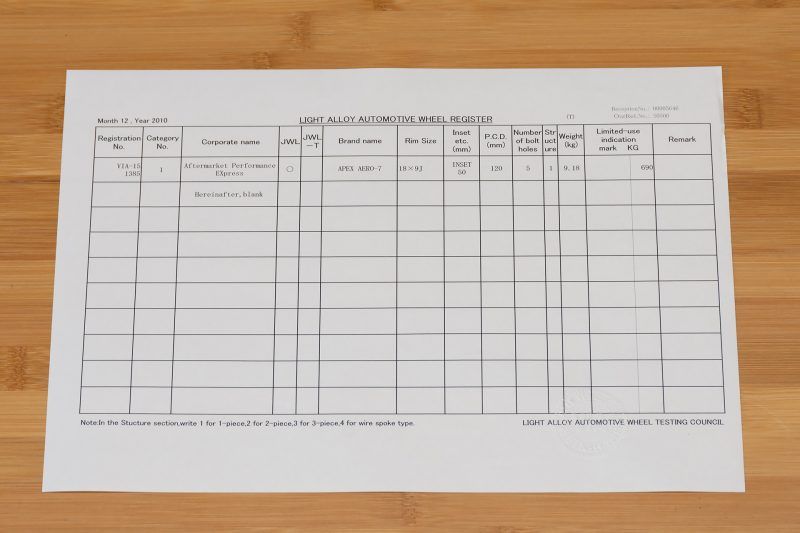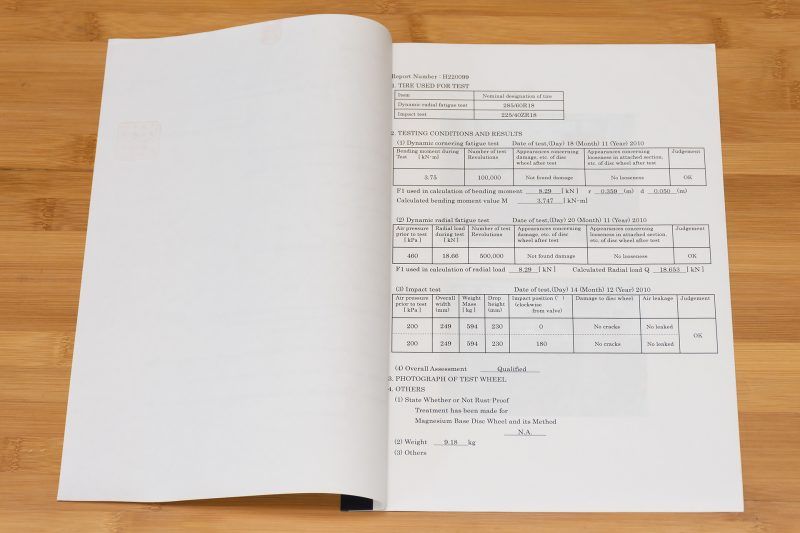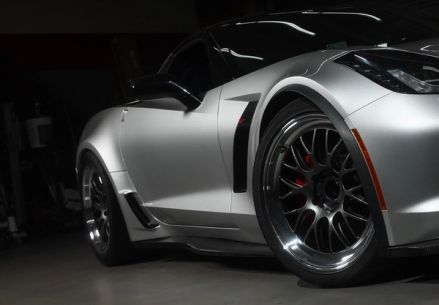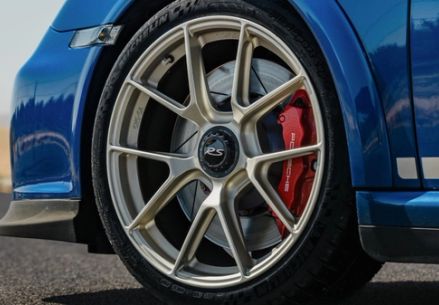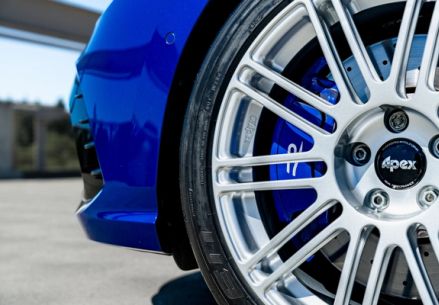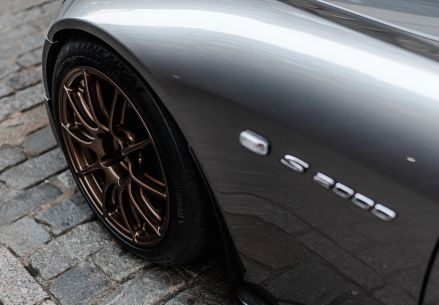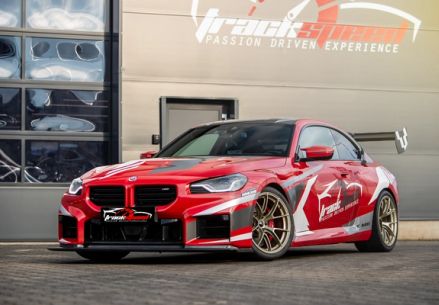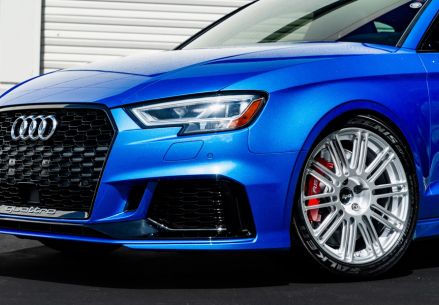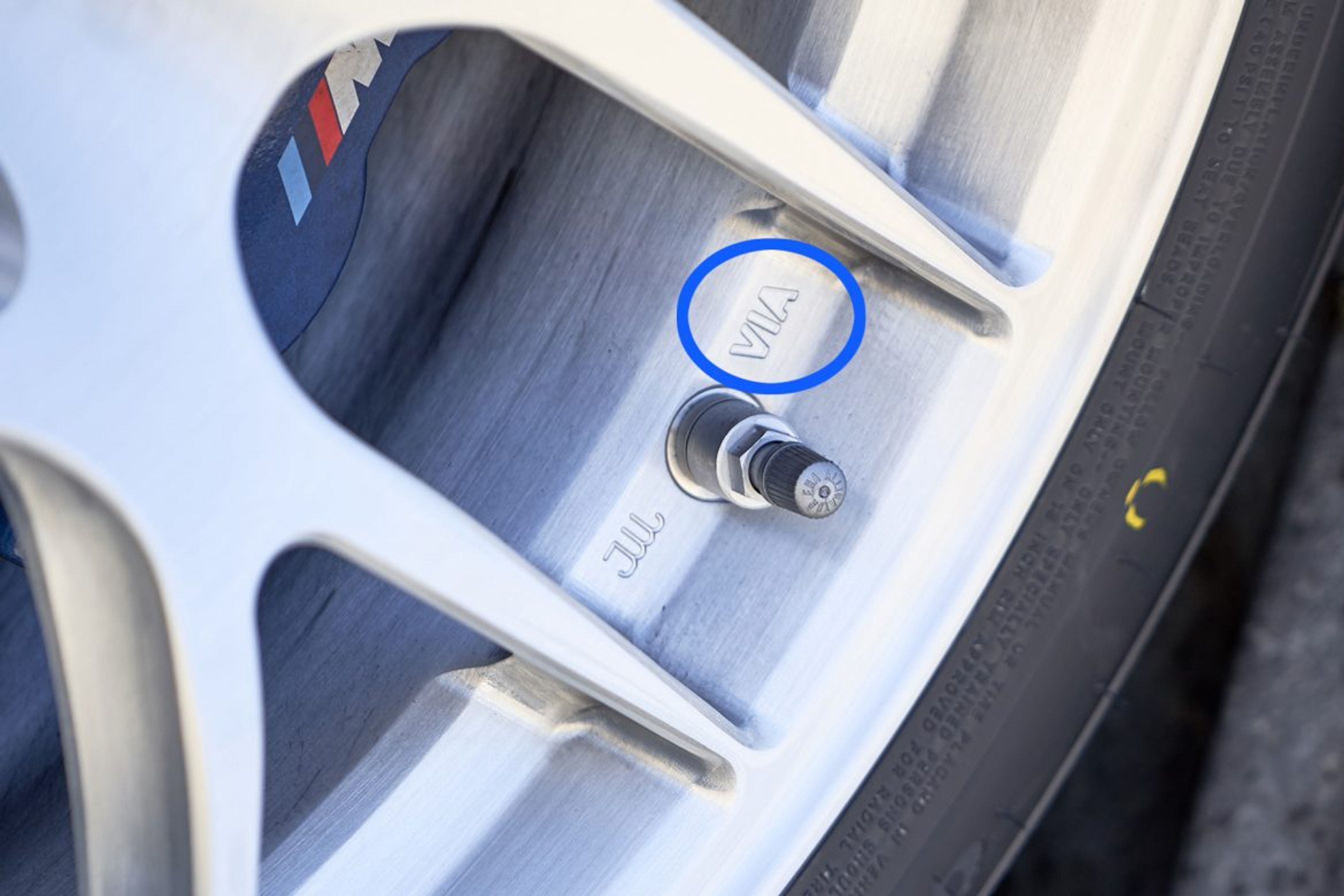
Are Your Wheels Really VIA?
Article | 08/14/2019 by Brandon Kimbell
Updated on 11/26/2025
Japan has stricter regulations on the automotive wheel industry than the United States does. Wheels used on the street in Japan must comply with strict load-rating and testing standards called “JWL” (Japan Light alloy Wheel). These tests are self-administered with no oversight, so there’s the potential for labeling wheels as being compliant when they really aren’t. This is why the VIA (Japanese Vehicle Inspection Association) was formed.
The VIA is an impartial third party that tests wheels to the JWL standard and maintains a searchable database of the wheels that have passed its review. Getting VIA-registered is voluntary and costs money. The VIA does bending, impact, and radial stress tests to validate the results manufacturers claim from their own testing. Only wheels that have been registered by the VIA can use their official logo, which is commonly stamped or machined into a wheel’s face.
Unfortunately, many wheel manufacturers claim to be VIA and they put the logo on the wheels they sell, even though the VIA never tested or registered them. Doing this is no different than putting the USDA Organic logo on untested and uncertified food, or claiming to be a graduate of Harvard University when you aren’t. The website of the JWTC (Japan Light Alloy Automotive Wheel Testing Council) clearly states:
“[D]isplaying the VIA mark without VIA registration means unauthorized use of a registered trademark, and hence is illegal. … Even if a product is sold in a country outside Japan, the VIAs marking cannot be displayed on products that are not registered with VIA.”
Unauthorized use of the VIA logo misleads the public, as it presents a product as being legitimate, trustworthy, and safe. It’s a quick shortcut to credibility. Testing by the VIA is expensive, so skipping the process saves a lot of money. As a result, wheels can be sold at a lower price when the more complex engineering, testing fees, shipping costs, and destruction of sample wheels are circumvented. Would you really keep buying food from a grocery store that was caught putting fake “certified organic” stickers on all their produce? You’d have to wonder what other shortcuts they’re taking.
Fortunately, these false VIA claims are pretty easy to prove, as there’s a searchable online database of all the wheels that have been registered in the last five years. We wouldn’t be surprised if most of the companies making these false claims don’t even know the database exists.
After testing, the VIA mails the manufacturer a bound and stamped test report with results of the various tests, along with a table of registration numbers that can be found in the online database. Every manufacturer should be able to provide these registration numbers upon request. Unfortunately, the database isn’t publicly accessible. Only VIA customers have access. We’re not certain if the VIA will ever grant database access to the general public, but we’re pushing to make this data more easily accessible to hold the industry more accountable.
Below are some photos of an old test report we received for our AERO-7 wheels. We picked this report because we don’t sell the wheel anymore and it won’t give away any proprietary info we’re concerned about. Unfortunately, this is one of the few reports we can show in full, as the VIA updated its documents with language that prohibits copying and distributing the contents.
As of the date this article was posted, Titan 7 advertises that their wheels are “durability tested according to DOT / SAE and JWL / VIA standards” and BimmerWorld claims their wheels are “tested above JWL standards and VIA certified”. Both companies have the VIA logo machined directly into their wheels even though they haven’t been tested or registered by the VIA. We’ve been monitoring the database, and their wheels have never shown up despite the release of numerous wheel fitments over the past few years. Even if Titan 7 applied to register all of its wheels today, the VIA would reject some of them. We’ve confirmed that not all of Titan 7’s fitments meet the minimum JWL requirements, which is a prerequisite of the VIA approval. You can read more about that in our write-up on JWL testing.
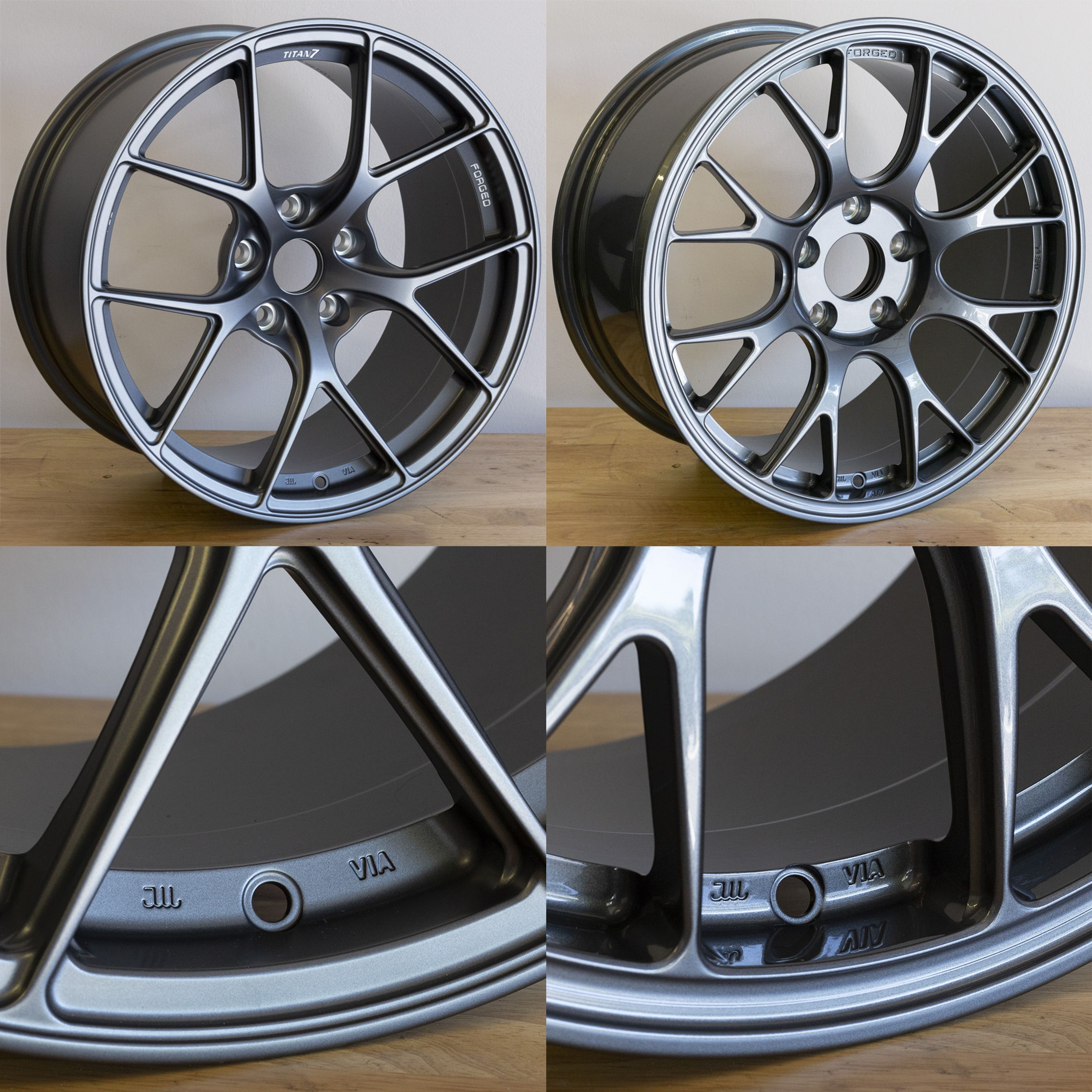
Unlike JWL testing, which can be done in-house and unsupervised, VIA testing is done by an independent third party. We highly recommend you look for wheels made by manufacturers that publish verifiable evidence that its products are registered. We post our registration numbers on our product pages for our existing wheels, and these numbers can be cross-referenced to the VIA’s database. At the time this article is posted, our forged wheels are still in the testing phase; therefore, they don’t have registration numbers just yet. Once the numbers are available, they too will be posted on the respective product pages.
Until there’s an easily accessible public database, you’ll have to rely on the community and those who do have access to confirm what’s real and what’s not. We’re hoping that pressure from the enthusiast community will force a change in the industry and create more transparency and accountability. We support required testing in the U.S., and we’ll be doing our part to promote that cause.
Tags
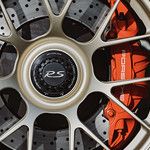 Brandon Kimbell
Brandon KimbellBrandon is a Porsche Fitment Expert at APEX Wheels. Prior to joining APEX in 2022, he worked as Office Manager for a Porsche & Ferrari service and race shop, guiding customers in all areas – suspension, power, aesthetics, you-name-it. His first foray into racing came In college when he was asked to assist at a PCA club race. Says Brandon, “I figured if I am already making the drive, I might as well enter the HPDE happening at the same time.” He hasn't stopped since. Among the various cars he has owned and/or tracked are a ‘74 Corvette Convertible, ’74 Firebird Formula 400, ‘17 GTI, ‘07 Cayman S, and his current ride, a ‘12 Cayman R (BGB X51 pack 3.8L) with staggered APEX EC-7RS 18x9”ET46 & 18x10” ET36 in Motorsport Gold. Fun Fact: Brandon is a big fan of SIM racing, which he uses to learn about a new track he’s going to or get a refresher on a familiar track, as well as improve his racecraft.Have questions about wheels for your Porsche? Use our contact form and ask for Brandon.
If you like cheap gear you will hate this newsletter.
